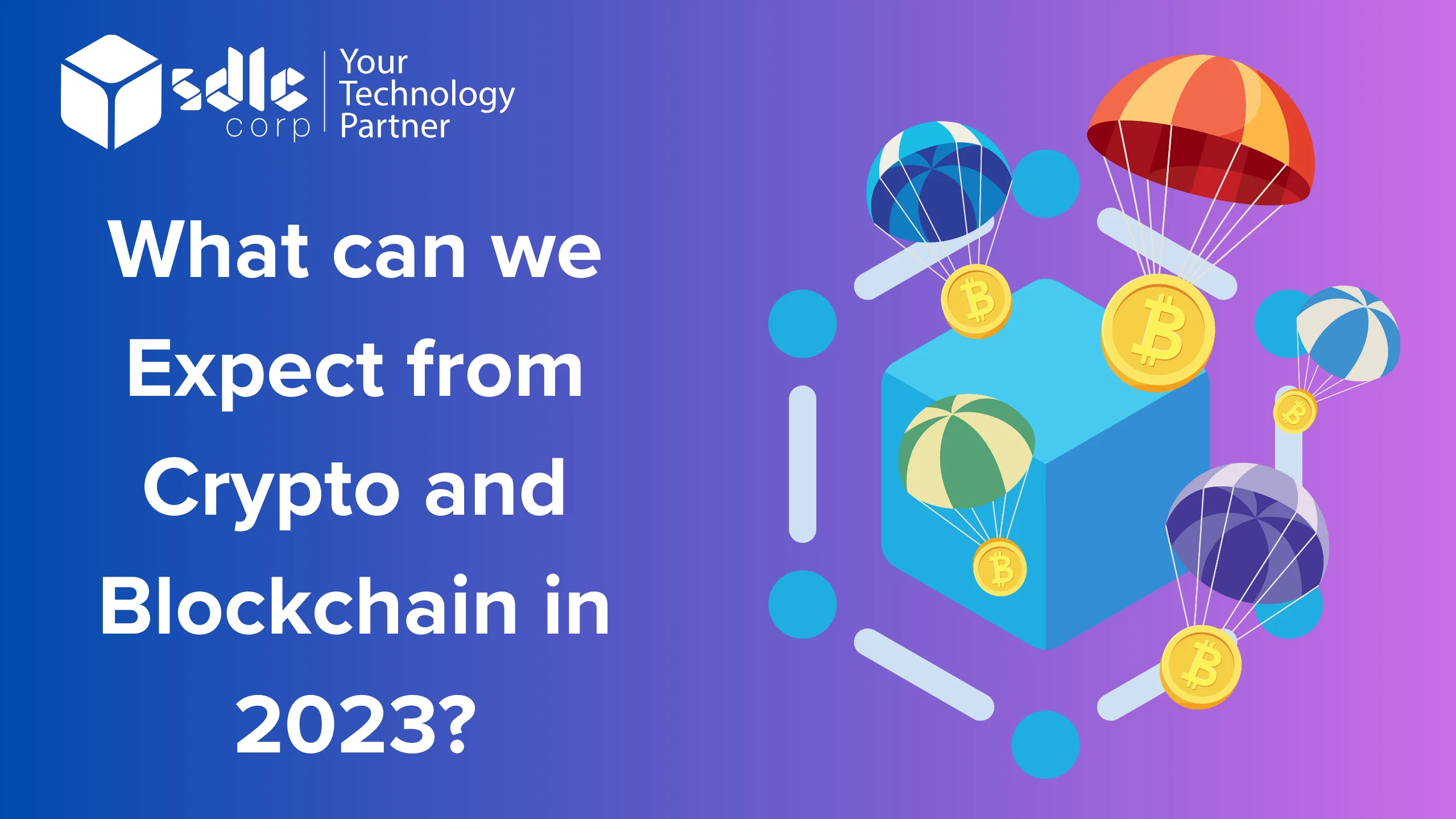Introduction
Blockchain to Promote Farm Exports: Apples are being grown as part of a pilot project by the Niti Aayog and the government of Himachal Pradesh. To ensure high-quality apples, we monitor them closely throughout the entire storage and distribution chain.
In addition, The Indian government wants to use blockchain technology on all crops grown for export. It will help increase food exports and encourage farmers to use methods that don’t involve chemicals. Soon, this could give natural farming a technological boost. In this blog, we’ll look at how farmers use blockchain to increase their overseas sales of agricultural products.
What Exactly is Blockchain?
Blockchain is a new digital technology allowing widespread financial transactions between dispersed untrustworthy parties without intermediaries such as banks. This article examines how blockchain technology influences agriculture and the food supply chain. It displays active projects and initiatives, investigates their general implications, difficulties, and promise, and assesses their maturity.
Despite numerous efforts to create a transparent food supply chain using blockchain technology, multiple obstacles, and problems still prevent it from becoming more widely adopted by farming practices and systems. These difficulties include technical elements, education, regulations, and regulatory frameworks.
Boost farm exports with blockchain! Trade smarter today.

Niti Aayog Plans to Utilize the Blockchain to Assist in Farm Exports
The Niti Aayog and the Himachal Pradesh government have launched a pilot project on apple horticulture to ensure high-quality output while monitoring the products throughout the entire storage and supply chain. In addition, The Indian government wants to use blockchain technology on all crops grown for export. This will help increase food shipments and encourage farmers to grow crops without chemicals. As a result, natural farming could soon receive a technological boost.
IoT sensors are also used in blockchain technology to collect and store data about crops, send crops grown by farmers to businesses that process food, and send processed food to wholesalers and retailers. Customers can use this to trace the supply chain back to ensure they purchase high-quality goods.
The system will replicate the pilot experiment on apples for other crops, including mangoes, bananas, grapes, and pomegranates. India is the world’s second-largest producer of fruits and vegetables, behind China, yet it only accounts for 1% of the total market. A lack of quality produce and traceability has hurt India’s food exports and demotivated growers. “This gap can be closed using blockchain technology,” a senior government representative told ET.
According to the representative, a blockchain helps eliminate unnecessary operations, ensure quality control, and monitor storage conditions by capturing product information at every level of the agricultural supply chain. Blockchain in export-import aid will contribute to higher-quality output and less waste by storing crop and product data and monitoring the supply chain and storage at all levels. For example, HP has launched an apple pilot program. BCCL will apply the same model to fruits like mangoes and grapes.
The Indian government intends to use blockchain technology across all export-driven crops to increase food shipments and encourage farmers to use chemical-free methods, which could soon provide natural farming with a technological boost. According to official India Trade Data, processed fruit and vegetable exports totaled $1.73 billion. These amount to approximately $1.12 billion in processed vegetables and pulses and $610.69 million in processed fruits and juices.
Blockchain Technology: Improving Supply Chain Management for Farm Exports
Farm exports are a significant source of revenue for many countries, and their success depends on efficient supply chain management. Unfortunately, this process is often complex, involving multiple intermediaries and regulatory bodies. As a result, delays, errors, and fraud can harm the supply chain (Blockchain in Supply Chain).
However, blockchain technology can offer solutions to these issues. By utilizing blockchain, exporters can track their products from the farm to the end consumer, recording every step of the supply chain in a transparent and immutable manner. This provides higher visibility and traceability, allowing stakeholders to identify issues and take corrective action in real time.
Explore our other insights!

Role of Blockchain in Poker Game
Blockchain in Poker Game depends on trust around fairness, balances, and payouts. Therefore, players must believe cards are

Blockchain Technology – Complete Guide
Introduction Blockchain technology is a groundbreaking innovation that offers a decentralized, secure, and transparent method for recording and

What can we Expect from Crypto and Blockchain?
Introduction Crypto and Blockchain: Most cryptocurrency enthusiasts were filled with confidence and optimism for the year ahead after
"Benefits of Blockchain Technology in Authenticating Agricultural Products and Streamlining Supply Chain"
Moreover, blockchain technology can ensure the authenticity and quality of agricultural products, which is critical for maintaining consumer trust. By recording data such as the farm’s location, the fertilizers used, and the harvest date, blockchain can verify that the product meets specific standards and has been produced sustainably. This information can be shared with consumers, giving them confidence in the product’s quality and provenance.
Another benefit of blockchain technology is that it can reduce costs and time associated with paperwork and regulatory compliance. Blockchain can streamline the supply chain and lower the risk of mistakes and delays by automating procedures and removing the need for intermediaries.
Transform exports with blockchain! Trade confidently today.

Blockchain Technology's Potential in Agriculture
1. Self-executing smart contracts: These are particularly useful in agricultural insurance, green bonds, and traceability, as well as payments.
2. Land registrations: To provide an incorruptible land record ledger.
3. Use supply chains to create an immutable record from a farm to a retail store.
4. Subsidy distribution: Direct payments with no documentation or multiple points of authorization.
According to the APEDA, In 2021–22, India exported fresh produce worth $1.52 billion, with fruits making up $750.7 million and vegetables coming in at $767.01 million.
Finally, blockchain technology can enhance financial transparency, making it easier for exporters to access financing and investors to monitor their investments. By recording transactions on a decentralized ledger, blockchain can provide a comprehensive and accurate picture of the supply chain’s financial health. To attract investment and reduce risk, one can use it.

Conclusion
FAQs
1. What are the challenges of Blockchain in agriculture?
Blockchain addresses agriculture’s most pressing issues, such as a lack of information, poor transparency, inefficient value chains, and limited resource access.
2. What impact has blockchain had on agriculture?
Combining blockchain and IoT can create a bright and secure agricultural system. Using blockchain in agriculture in conjunction with IoT, innovative technology, and sensors can aid in ensuring food safety and quality, tracing food origins, and optimizing agricultural production.
3. Is blockchain technology capable of promoting agricultural sustainability?
Blockchain technology can make the agricultural supply chain more transparent and efficient. In addition, blockchain can help to improve food safety and traceability by tracking the provenance of food items from farm to table.
4. Which state is already using Blockchain for farming?
Andhra Pradesh has collaborated with a Swedish company to create a blockchain-based platform for land registration record-keeping. This will allow farmers to communicate directly with the government, protecting them from fraud.
5. Which blockchain technology is the most widely used?
Almost 40% of the value of all cryptocurrencies comes from Bitcoin, so it’s safe to say that the blockchain is the most popular.



